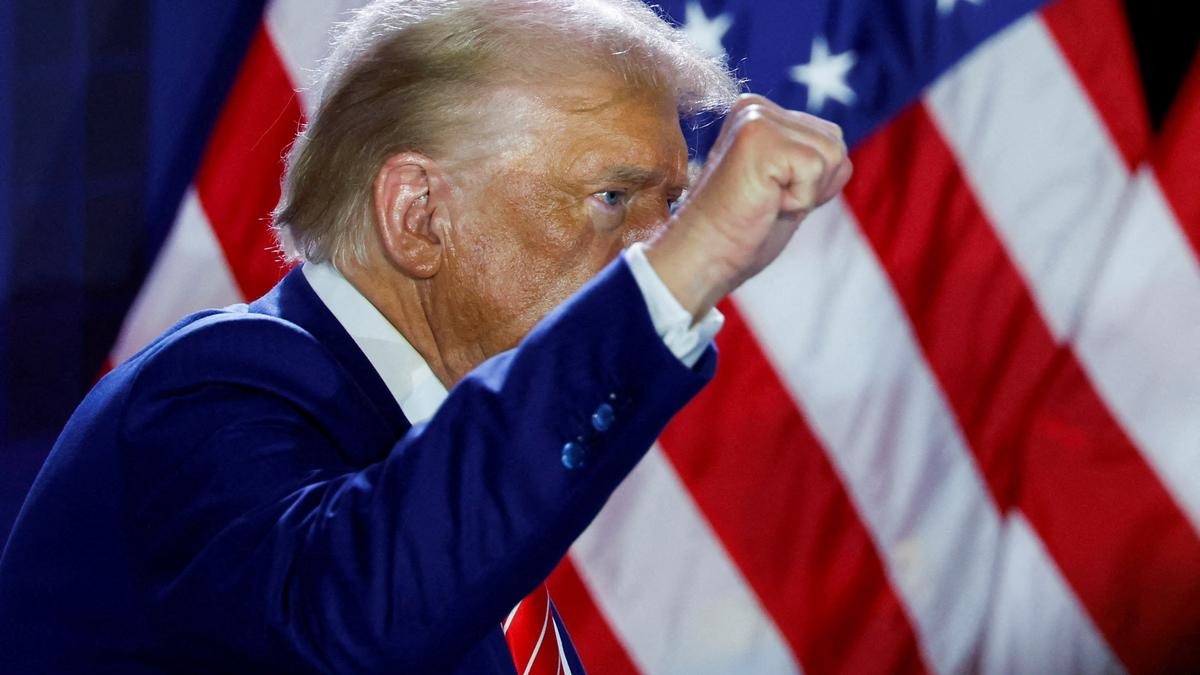Taiwan's Economy Minister: Trump Misunderstands Island's Role in Semiconductor Industry
Former U.S. President Donald Trump recently faced criticism from Taiwan's Economy Minister, Kuo Jyh-huei, who asserted that Trump has a misunderstanding of Taiwan's position in the semiconductor industry. This statement comes in light of Trump's comments made in July, where he suggested that Taiwan should "pay us for defense" and accused the island nation of having taken American semiconductor business. Kuo indicated that Trump's views might stem from misinformation provided by others, emphasizing that Taiwan's role is complementary to the U.S. chip industry rather than competitive
 Image credit: The Hindu
Image credit: The Hindu
Misunderstandings and Economic Implications
Kuo's remarks were made during a press conference in Taipei, where he addressed the impact of Trump's statements on Taiwan's economy, particularly the stock market. Trump's comments led to a significant drop in shares of Taiwan Semiconductor Manufacturing Company (TSMC), the world's largest contract chipmaker and a key supplier to major companies like Apple and Nvidia. Kuo firmly stated, "Taiwan did not steal the U.S. chip industry," highlighting that the semiconductors produced in Taiwan are commissioned by American firms, which continue to enjoy substantial profit margins
The minister pointed out that Trump's misunderstanding reflects a broader issue of communication and lobbying efforts between Taiwan and the United States. He suggested that Trump's views may have been influenced by friends or competitors in Taiwan who provided misleading information. Kuo remarked, "The president has a lot on his plate; maybe a friend or a competitor in Taiwan told him that," underscoring the need for clearer communication regarding Taiwan's contributions to the global semiconductor supply chain
Taiwan's Commitment to the U.S. and Defense Spending
In response to Trump's assertion that Taiwan should financially contribute to U.S. defense, Kuo reiterated Taiwan's commitment to its own defense capabilities. The Taiwanese government has been actively increasing its defense budget and extending the conscription period to bolster its military readiness. Premier Cho Jung-tai also emphasized that it is a mutual responsibility to maintain peace and stability in the Taiwan Strait and the broader Indo-Pacific region
Taiwan's strategic importance in the semiconductor industry has been recognized globally, especially as the U.S. aims to reduce its reliance on foreign chip manufacturing. TSMC is investing heavily in expanding its production capabilities, including a $65 billion investment in three new plants in Arizona. However, Kuo confirmed that most of TSMC's manufacturing will remain in Taiwan, which is crucial for maintaining the island's economic stability and technological leadership
Future Prospects and Industry Developments
As Taiwan prepares for the upcoming Semicon Taiwan exhibition, where top executives from TSMC, Samsung, and SK Hynix will gather, Kuo's comments serve to reassure both domestic and international stakeholders of Taiwan's integral role in the semiconductor supply chain. The exhibition is expected to showcase Taiwan's advancements in chip technology and its commitment to collaboration with global partners
Moreover, Kuo announced plans for the establishment of a business park in Kyush, Japan, aimed at supporting Taiwanese enterprises operating in the region. This initiative reflects Taiwan's strategy to strengthen its economic ties with neighboring countries and enhance its global competitiveness in the semiconductor sector
In conclusion, Kuo Jyh-huei's statements highlight the complexities of international relations and the importance of clear communication between Taiwan and the United States. As the semiconductor industry continues to evolve, Taiwan's role as a critical player in global supply chains remains vital, and efforts to clarify misunderstandings will be essential for fostering cooperation and stability in the region.



